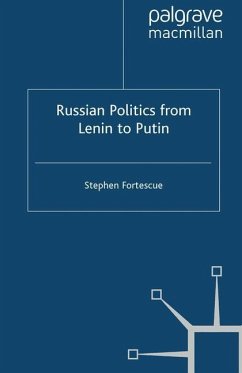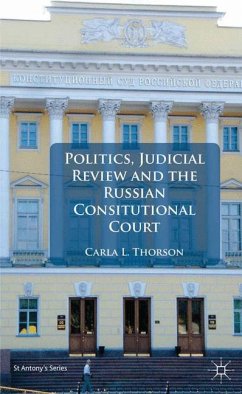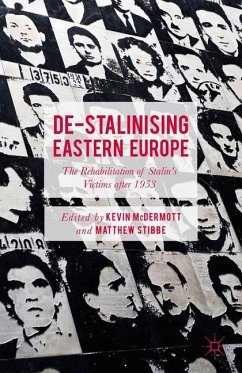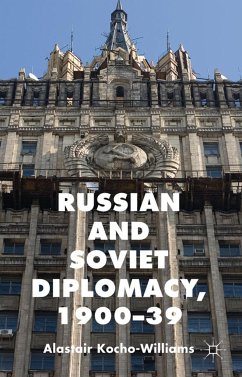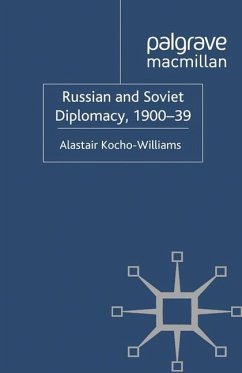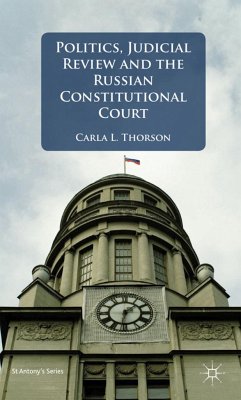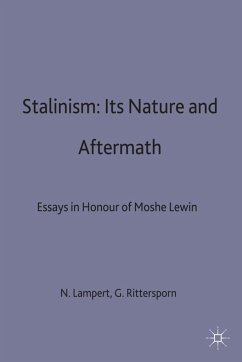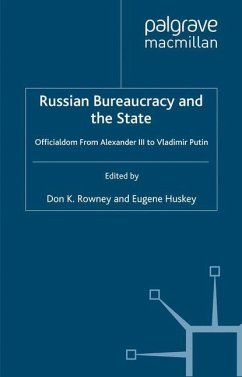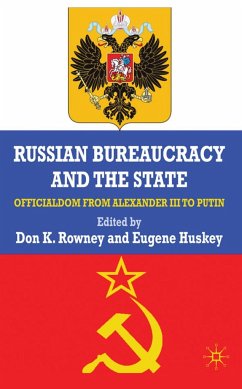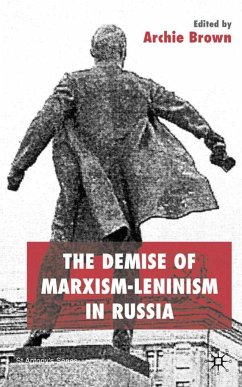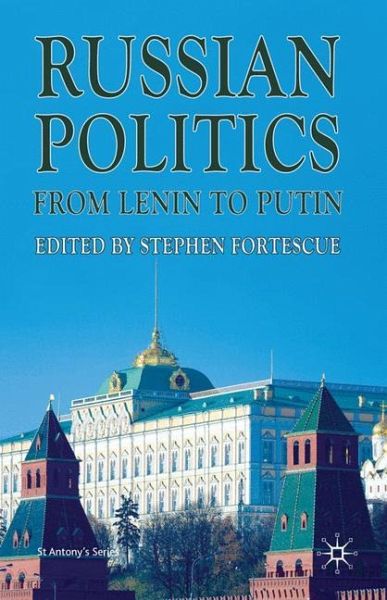
Russian Politics from Lenin to Putin

PAYBACK Punkte
19 °P sammeln!
Seven leading specialists present chapters devoted to key themes in Soviet and post-Soviet Russian politics. Those themes include: the personal versus the institutional in the political process; legitimacy and legitimation; and change and collapse of a mono-organisational society. While the book focuses on these major themes, individual chapters deal with wide-ranging and even unusual cases: Graeme Gill analyzes the legitimating functions of Moscow's architecture, Sheila Fitzpatrick uses the archives to draw a picture of Stalin 'the boss' dealing with his closest colleagues, Eugene Huskey prov...
Seven leading specialists present chapters devoted to key themes in Soviet and post-Soviet Russian politics. Those themes include: the personal versus the institutional in the political process; legitimacy and legitimation; and change and collapse of a mono-organisational society. While the book focuses on these major themes, individual chapters deal with wide-ranging and even unusual cases: Graeme Gill analyzes the legitimating functions of Moscow's architecture, Sheila Fitzpatrick uses the archives to draw a picture of Stalin 'the boss' dealing with his closest colleagues, Eugene Huskey provides a detailed description of post-Soviet Russian pantouflage, and Archie Brown and Peter Reddaway present their different takes on Gorbachev and the Soviet collapse. Stephen Fortescue provides an overview of policy-making processes from Lenin and Putin, and Leslie Holmes updates the concept of goal-rational legitimacy.





